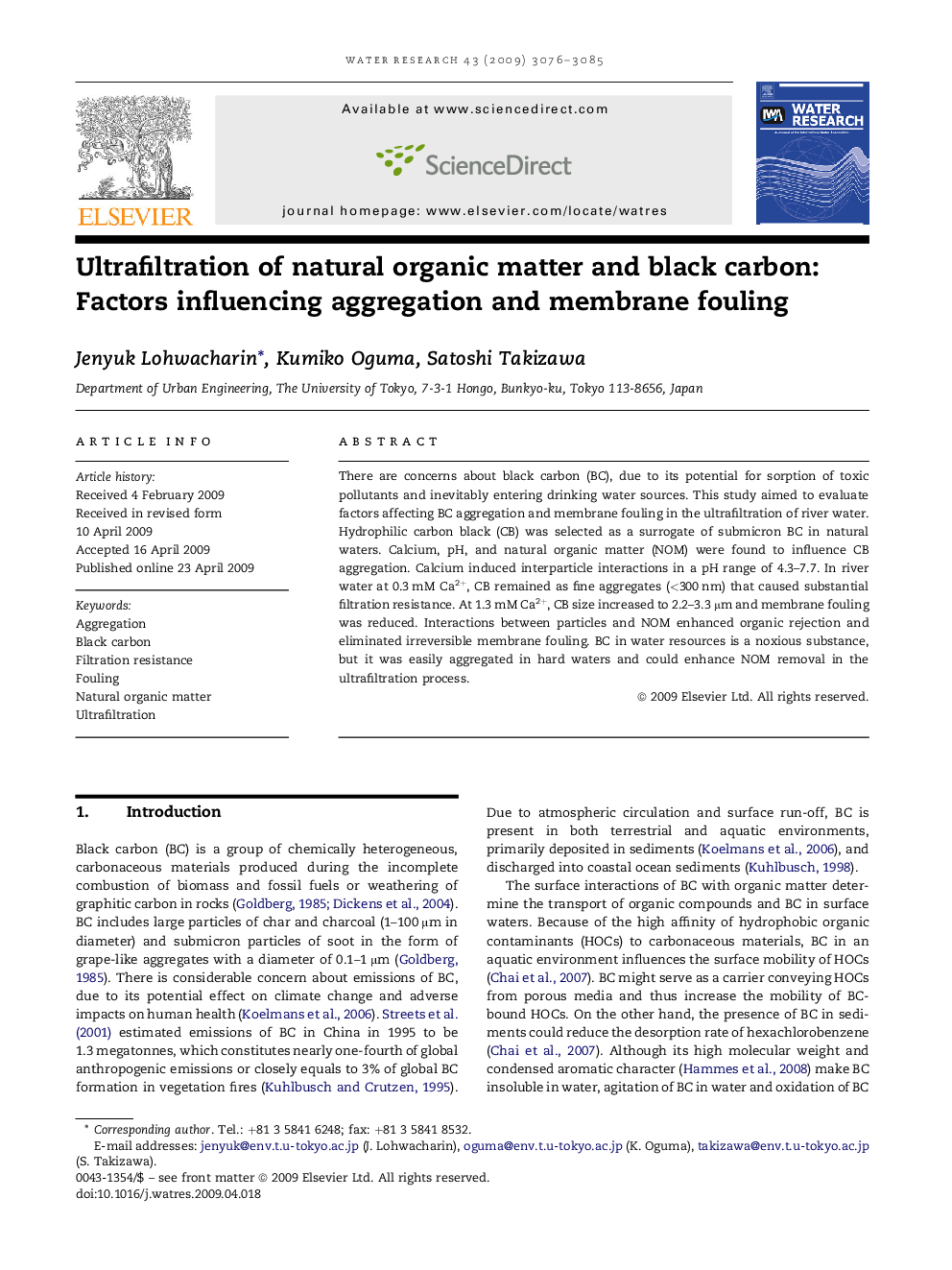| Article ID | Journal | Published Year | Pages | File Type |
|---|---|---|---|---|
| 4482968 | Water Research | 2009 | 10 Pages |
There are concerns about black carbon (BC), due to its potential for sorption of toxic pollutants and inevitably entering drinking water sources. This study aimed to evaluate factors affecting BC aggregation and membrane fouling in the ultrafiltration of river water. Hydrophilic carbon black (CB) was selected as a surrogate of submicron BC in natural waters. Calcium, pH, and natural organic matter (NOM) were found to influence CB aggregation. Calcium induced interparticle interactions in a pH range of 4.3–7.7. In river water at 0.3 mM Ca2+, CB remained as fine aggregates (<300 nm) that caused substantial filtration resistance. At 1.3 mM Ca2+, CB size increased to 2.2–3.3 μm and membrane fouling was reduced. Interactions between particles and NOM enhanced organic rejection and eliminated irreversible membrane fouling. BC in water resources is a noxious substance, but it was easily aggregated in hard waters and could enhance NOM removal in the ultrafiltration process.
